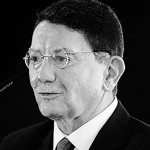New tool to measure tourism impact
View(s):
Taleb Rifai
The World Tourism Organisation (UNWTO) is planning to introduce nextmonth a new method of measuring the impact of tourism and its benefit to a country’s economic and social wellbeing instead of relying on arrivals alone.
UNWTO Secretary General Taleb Rifai said they would be launching the Measurement of Sustainable Tourism (MST) index as a tool that would take a holistic look at the impact of tourism on communities and the economy, at a UNWTO meeting in the Philippines on June 21-24.
Dr. Rifai, whose second term ends in early 2018 with the UNWTO on the hunt for his replacement, made these comments at a special UNWTO/PATA Ministerial debate held during the May 18-20 annual summit of the Pacific Asia Travel Association held in Sri Lanka’s west coast town of Negombo.
While for years countries have relied on the ‘numbers game’ and more arrivals to measure the success of tourism, the sustainability of tourism and the impact of travel on the environment has led many cities to focus on a high-end, less-numbers product with high-spending visitors bringing in more revenue while leaving behind a smaller carbon footprint. “For years we have been relying on arrivals as the impact but we need to examine the impact in terms of the economy, jobs, society, communities,” Dr. Rifai said during the discussion that looked at climate change impact, over-crowding at tourism sites and strains on infrastructure. “We need to move into a truly green economy. Growth and sustainability must go hand in hand. We have to fight climate change; 5 per cent of the carbon emissions come from travel and of this 2 per cent is from transport,” he said.
While Deepak Raj Joshi, CEO of the Nepal Tourism Board, said his country has restricted travel to certain sites due to over-visitation, another panellist Hiran Cooray, Chairman of Jetwing Hotels, said Sri Lanka has strict environment protection laws where a sewage treatment plant is compulsory in every hotel. Renewable energy plants in hotels are also encouraged by the government.
Mirza Mohamed Taiyab, Director General of Tourism Malaysia, said while Malaysia has an advantage of a small population in a large land mass with lots of nature, the government did an eco-tourism survey some time ago to examine how best tourism should be developed while ensuring communities benefit.


